Table of Contents
Do you want a gentle companion that offers not only loyalty but also empathy, making a perfect fellow? Just like dogs, horses, with their various breeds, provide unparalleled comfort to humans. Apart from horse riding, owning a horse is an adventurous yet comforting experience. Among many breeds and types, miniature horses stand out due to their small size and social nature. With an average lifespan of 35 years, these horses have characteristics that are nowhere near regular horses. So, if you are thinking of adopting a miniature horse for a great experience, you need to learn about this type in detail.
What Are Miniature Horses?
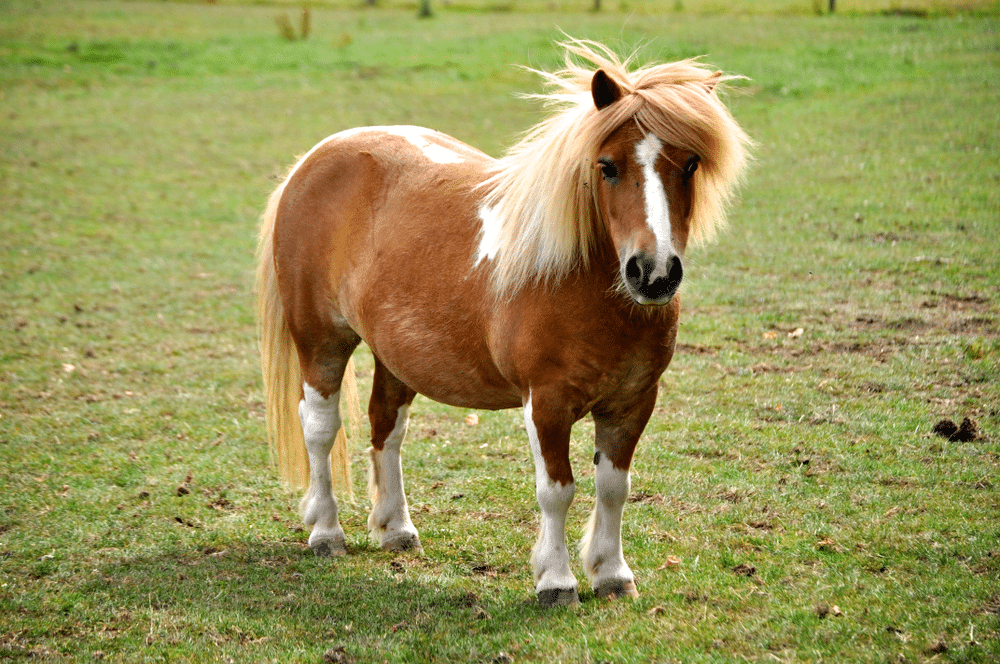
On a hunt for a gentle and loyal companion? A cute miniature horse is something to adopt. It is a small horse that is bred in a way that resembles full-size horses on a smaller scale. It is known as miniature horses. Miniature horses have the same dimensions as larger horses but are more compact, unlike pony breeds, which have different body proportions and traits. Their gentle nature and small size make them popular pets, companions, and even therapy animals.
Miniature Horse Origins and History
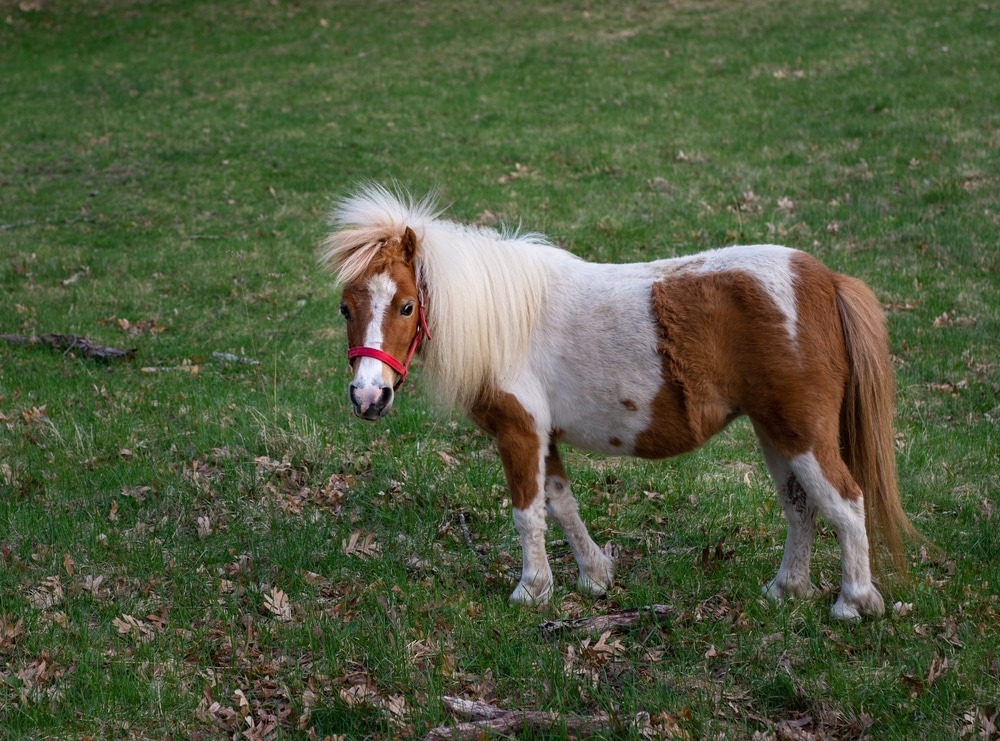
Before delving deep into the breeds of miniature horses, let’s see their origin. Miniature horses have a centuries-long history. They originated in Europe in the seventeenth century, mostly as novelty pets for aristocrats. These tiny horses were raised to be both beautiful and obedient, and they were frequently housed in palace gardens. Moreover, these horses originated to fulfill the need for exotic pets among wealthy people.
The late 19th and early 20th centuries saw the emergence of the miniature horse as we know it today. Selective breeding in the US significantly improved the breed by bringing in genetics from small horse breeds like the Shetland pony. As a result, organizations such as the American Miniature Horse Registry (AMHR) and the American Miniature Horse Association (AMHA) were formed, along with breed standards.
Dimensions and Sizes of Miniature Horse
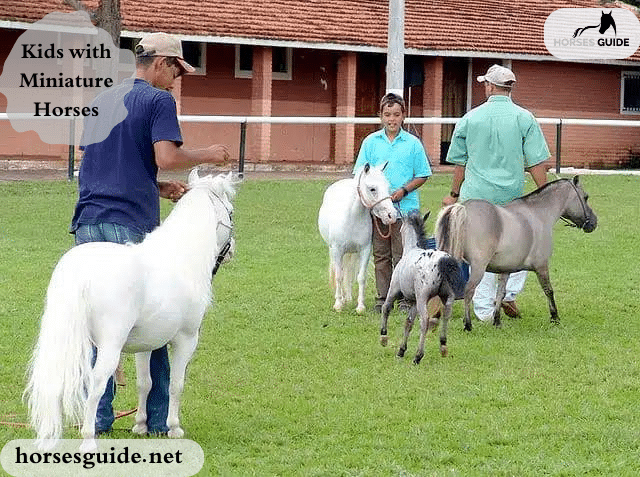
The main characteristic of miniature horses is their height. For these horses, the AMHA and AMHR have established severe height restrictions:
- AMHA Standards: At the withers, or the highest point of the shoulders, miniature horses cannot stand taller than 34 inches.
- AMHR Standards: Miniature horses are divided into two categories. Division A is for horses up to 34 inches tall, and Division B is for horses between 34 and 38 inches tall.
Miniature Horse Breeding and Uses
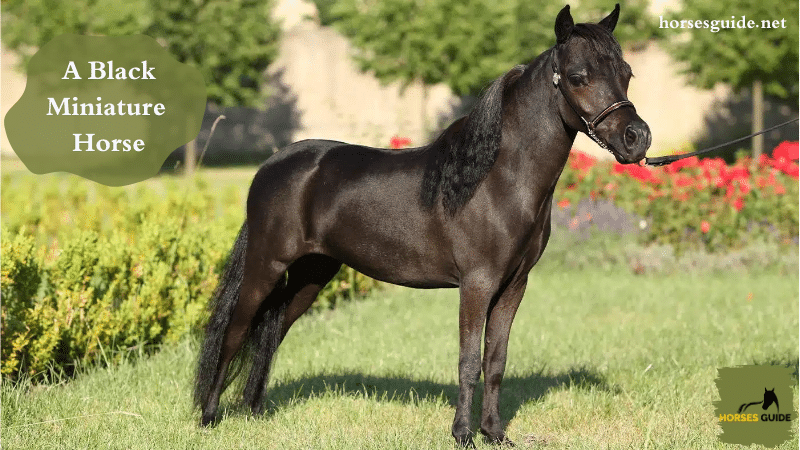
Careful selection is necessary while breeding miniature horses to preserve their small stature and maintain good health and soundness. Breeders frequently concentrate on characteristics like conformation, temperament, and color to create horses that fulfill breed requirements and are appropriate for a variety of purposes.
Because of their adaptability, miniature horses can be used in many ways:
- Companion Animals: They make great pets and companions because of their modest size and amiable disposition.
- Animal Therapy: Frequently trained as guide animals or therapy animals, miniature horses visit hospitals, assisted living facilities, and educational institutions to offer solace and company.
- Driving: Because they can pull little carts, certain miniature horses are well-liked for parades and recreational driving.
- Show Horses: The beauty and agility of miniature horses are regularly displayed in halter and performance events.
Traits of Miniature Horse
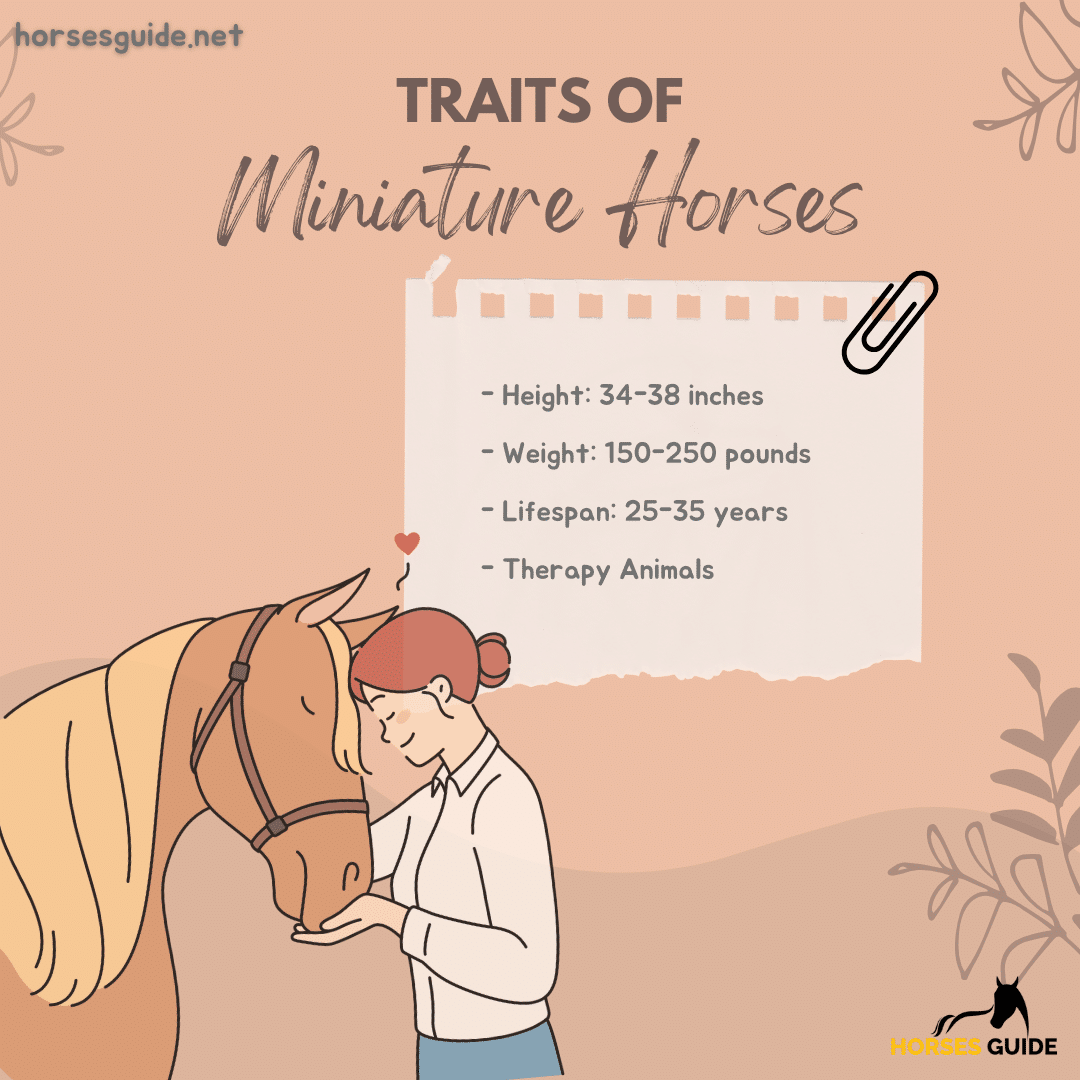
Apart from knowing the lifespan of a miniature horse, it is important to know the characteristics of this type.
The following are some distinctive qualities that set miniature horses apart:
Temperament
Due to their kind nature and amiable disposition, miniature horses are suited for socializing with both adults and children.
Intelligence
These horses are incredibly smart and have the capacity to learn a wide range of skills.
Appearance
Miniature horses have sturdy legs, muscular bodies, and well-defined heads, just like full-size horses, despite their diminutive stature. They could appear tiny, but they frequently have a large head and a deep chest.
Longevity
Miniature horses can survive far into their 20s or even 30s with the right care. This indicates that miniature horses live longer than other breeds.
Pros and Cons of Miniature Horses
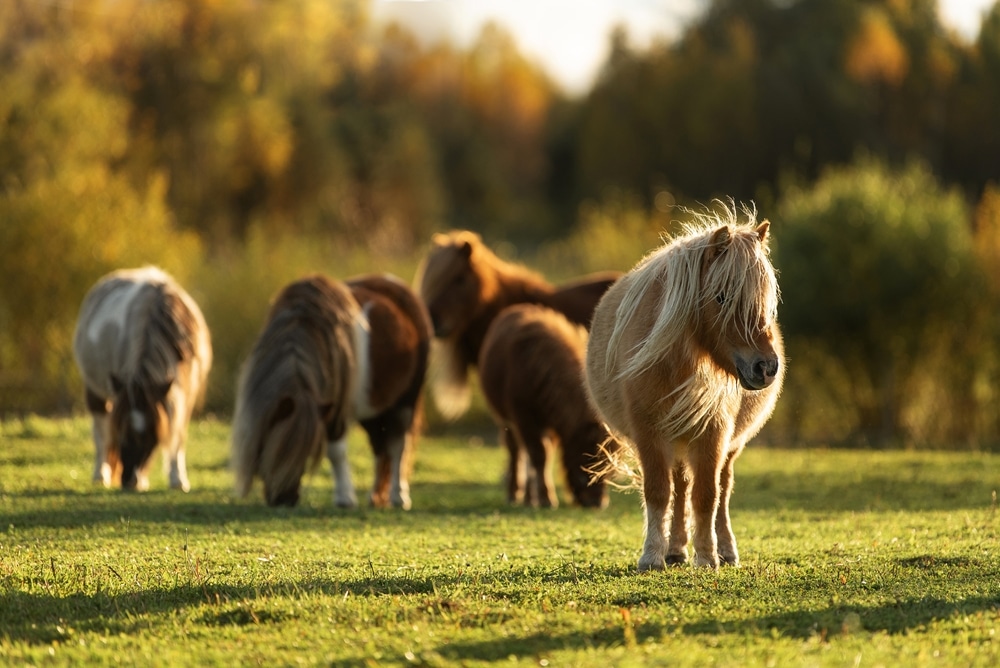
Once you know how much a miniature horse cost., having a tiny horse is an enthralling experience. Owning a miniature horse has benefits and drawbacks of its own, just like having any pet.
Pros
Below are the pros of having a miniature horse:
- Manageable Size: Due to their modest stature, miniature horses are easier to handle and care for than full-size horses.
- Lower upkeep Costs: Since miniature horses often need less room and food, their total upkeep costs are cheaper.
- Versatility: They provide a variety of activities and company, whether used as show horses, therapy animals, or pets.
Cons
- Health Issues: Miniature horses are prone to obesity and dental problems, which require careful attention.
- Space Requirements: Even though they are little, they still need enough room to roam around and exercise.
- Specialized treatment: To maintain their health, they require routine farrier services, dental exams, and doctor treatment.
Miniature Horse Adoption Procedure
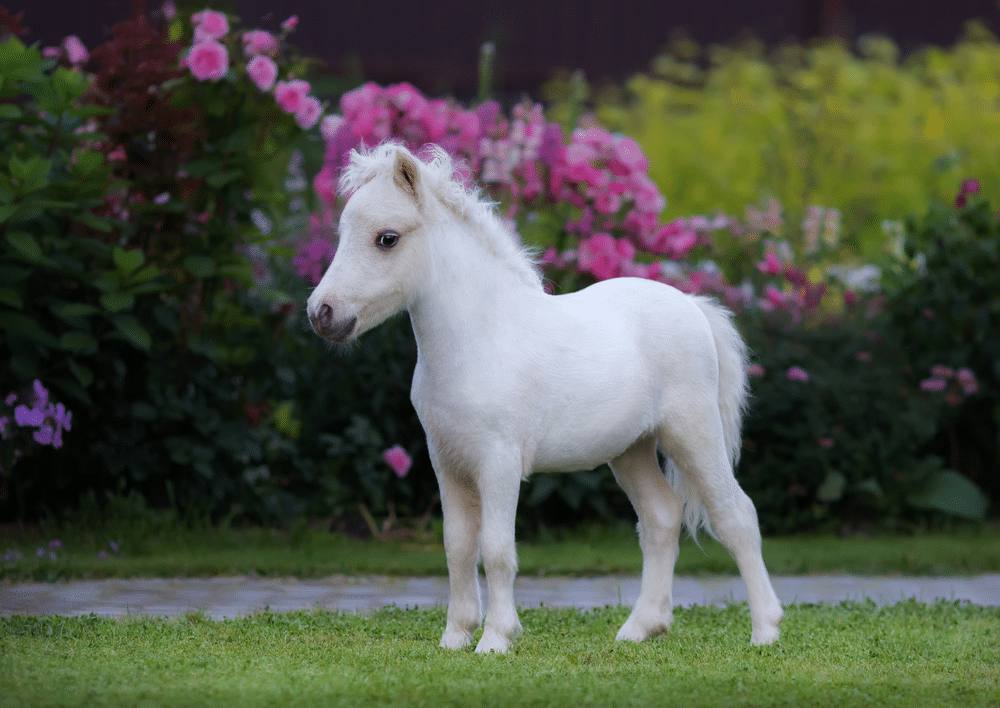
Several essential steps must be taken in order to ensure a happy and successful adoption of a miniature horse. Just gather insights about how much a miniature horse is and then the whole process of adoption, which is explained below:
1. Research
After knowing how much a miniature horse is, get information about miniature horses, including what kind of upkeep they need and what an owner should anticipate. It’s important to comprehend their wants and traits before committing.
2. Find an Accredited Breeder
Seek out breeders or rescue groups that have a solid track record of producing or rehoming healthy, well-maintained horses.
3. Visit the Facility
If at all feasible, go see the horses and their living quarters at the rescue or breeder. As a result, you’ll have a clearer understanding of the horse’s habitat.
4. Ask Questions
Find out about the horse’s temperament, training, past medical history, and any unique care needs. Reputable breeders and rescues ought to be open and prepared to offer any required information.
5. Set Up Your Home
Make sure you have enough room, a suitable roof, and supplies to take care of a small horse. This covers grazing and freshwater access, fencing, and a suitable shelter.
6. Complete the Adoption Process
After you’ve selected the ideal horses, make the required arrangements for documentation and transportation to your house. Make sure you abide by all local laws and standards regarding the ownership of horses. What is the cost of an adoption? Adoption fees differ; therefore, it’s critical to ascertain the cost of a miniature horse in advance.
7. Ongoing treatment
To keep your miniature horse healthy and happy, give it regular doctor treatment, a balanced diet, exercise, and company.
Considerations for Miniature Horse Care
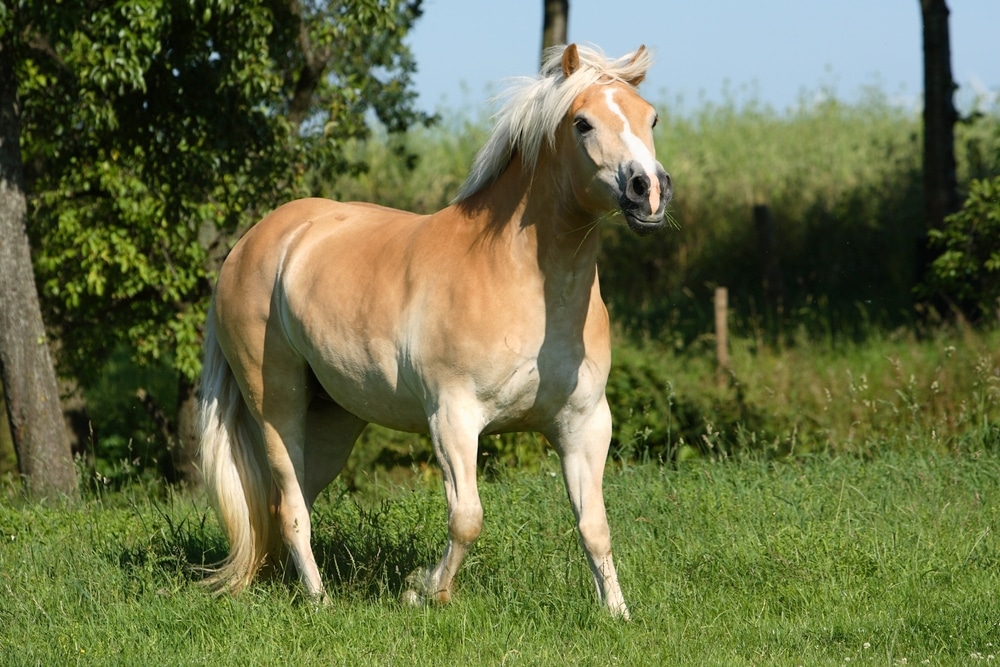
In order to make sure your miniature horse thrives in its new surroundings, continued care is just as crucial as the adoption process. The following are some other things to think about:
Diet and Nutrition
Hay, fresh water, and, if needed, a small amount of grain should be part of a balanced diet for miniature horses. Since they are more likely to become obese, it is crucial to keep an eye on their weight and adapt their diet as necessary. You can better control your miniature horse’s food if you know how much a miniature horse weighs.
Activities and Enrichment
Maintaining general health and preventing obesity need regular exercise. It’s crucial to give your miniature horse a roomy and secure space to run about in and play. They can remain mentally stimulated by engaging in enrichment activities like playing with toys and interacting with other animals.
Health treatment
It’s imperative to provide regular dental, veterinary, and vaccine treatment. Because of their small mouths, miniature horses are more susceptible to dental problems. Therefore, regular dental checks are essential.
Grooming
Regular grooming contributes to the health of their skin and coat and allows them to look for any indications of disease or injury. Certain breeds, such as the Fjord horse and the Icelandic horse, are noted for having thick coats that need more maintenance.
Socialization
Miniature horses benefit greatly from the company due to their gregarious nature. If at all feasible, think about adopting multiples or making sure they get to socialize with people and other animals.
Selecting the Ideal Miniature Horse for Yourself
It takes more than just picking the first miniature horse you see to choose the correct one. The following tips can help you locate the ideal partner:
- Temperament Match: Confirm that the horse’s disposition aligns with your goals and way of life. While some small horses are quiet and relaxed, others are more active.
- Health Status: Pick a horse that is in good health. Steer clear of horses with established chronic health problems unless you are ready to provide the extra care they need.
- Training and Experience: You might prefer a horse that is already trained and used to interacting with people based on your degree of experience. Both you and the horse could benefit from a smoother transition if you do this.
You can check out different breeds of miniature horses in this article guide.
Conclusion
Summing up, the article covered discussion on miniature horses, a small kind with a gentle and loyal nature. Those who love having a horse should consider miniature horses when it comes to adoption for a small and lively companion. So, check out their characteristics today and opt for the adoption process without further ado.
Pick the Ideal Fellow!



